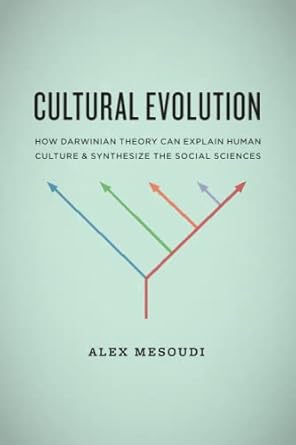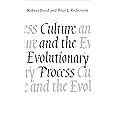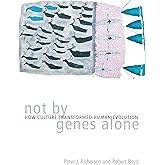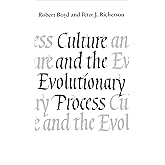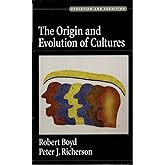
Amazon Prime Free Trial
FREE Delivery is available to Prime members. To join, select "Try Amazon Prime and start saving today with FREE Delivery" below the Add to Cart button and confirm your Prime free trial.
Amazon Prime members enjoy:- Cardmembers earn 5% Back at Amazon.com with a Prime Credit Card.
- Unlimited FREE Prime delivery
- Streaming of thousands of movies and TV shows with limited ads on Prime Video.
- A Kindle book to borrow for free each month - with no due dates
- Listen to over 2 million songs and hundreds of playlists
Important: Your credit card will NOT be charged when you start your free trial or if you cancel during the trial period. If you're happy with Amazon Prime, do nothing. At the end of the free trial, your membership will automatically upgrade to a monthly membership.
Buy new:
$36.79$36.79
Ships from: Amazon Sold by: Tome Dealers
Save with Used - Good
$31.63$31.63
FREE delivery April 14 - 15
Ships from: textbooks_source Sold by: textbooks_source

Download the free Kindle app and start reading Kindle books instantly on your smartphone, tablet, or computer - no Kindle device required.
Read instantly on your browser with Kindle for Web.
Using your mobile phone camera - scan the code below and download the Kindle app.

Cultural Evolution: How Darwinian Theory Can Explain Human Culture and Synthesize the Social Sciences Illustrated Edition
Purchase options and add-ons
Charles Darwin changed the course of scientific thinking by showing how evolution accounts for the stunning diversity and biological complexity of life on earth. Recently, there has also been increased interest in the social sciences in how Darwinian theory can explain human culture.
Covering a wide range of topics, including fads, public policy, the spread of religion, and herd behavior in markets, Alex Mesoudi shows that human culture is itself an evolutionary process that exhibits the key Darwinian mechanisms of variation, competition, and inheritance. This cross-disciplinary volume focuses on the ways cultural phenomena can be studied scientifically—from theoretical modeling to lab experiments, archaeological fieldwork to ethnographic studies—and shows how apparently disparate methods can complement one another to the mutual benefit of the various social science disciplines. Along the way, the book reveals how new insights arise from looking at culture from an evolutionary angle. Cultural Evolution provides a thought-provoking argument that Darwinian evolutionary theory can both unify different branches of inquiry and enhance understanding of human behavior.
- ISBN-100226520447
- ISBN-13978-0226520445
- EditionIllustrated
- PublisherUniversity of Chicago Press
- Publication dateSeptember 1, 2011
- LanguageEnglish
- Dimensions9.02 x 6.08 x 0.61 inches
- Print length264 pages
Frequently bought together

Customers who viewed this item also viewed
Editorial Reviews
About the Author
Alex Mesoudi is a lecturer in psychology at Queen Mary, University of London. He is the author or coauthor of articles in such leading journals as Behavioral and Brain Sciences, Evolution, and Psychological Review.
Product details
- Publisher : University of Chicago Press; Illustrated edition (September 1, 2011)
- Language : English
- Paperback : 264 pages
- ISBN-10 : 0226520447
- ISBN-13 : 978-0226520445
- Item Weight : 13.6 ounces
- Dimensions : 9.02 x 6.08 x 0.61 inches
- Best Sellers Rank: #1,849,733 in Books (See Top 100 in Books)
- #1,226 in Anthropology (Books)
- #7,451 in Cultural Anthropology (Books)
- #67,207 in Politics & Government (Books)
- Customer Reviews:
About the author

Discover more of the author’s books, see similar authors, read book recommendations and more.
Customer reviews
Customer Reviews, including Product Star Ratings help customers to learn more about the product and decide whether it is the right product for them.
To calculate the overall star rating and percentage breakdown by star, we don’t use a simple average. Instead, our system considers things like how recent a review is and if the reviewer bought the item on Amazon. It also analyzed reviews to verify trustworthiness.
Learn more how customers reviews work on AmazonTop reviews from the United States
There was a problem filtering reviews. Please reload the page.
- Reviewed in the United States on January 5, 2012This is a great book about the important topic of cultural evolution.
Alex Mesoudi is an experimental psychologist working in the field, and has previously published numerous papers and a PhD thesis on the topic.
His book lays out the case for a Darwinian theory of cultural evolution in plain language, in a manner which should be comprehensible to a wide audience.
The preface states his aim with the book - which he says "is to nudge the social sciences along a little". He does this by illustrating the progress that has been made in explaining culture scientifically using Darwinian evolutionary theory.
The book is divided up into introductory material, microevolution, macroevolution, experimental work, field work, evolutionary economics, culture in non-human animals and a chapter about the coming evolutionary synthesis for the social sciences.
The writing is dense, clear and polished. The first three chapters are great - so best to start at the beginning. Much of the second half of the book consists of summarising literature in the field, which Mesoudi does pretty well.
The book does a good job of making its case. Most readers will probably come away convinced that the vast majority of Mesoudi's ideas on the topic are correct.
The book has several themes. One is that cultural evolution is Darwinian. Another is that cultural evolution is not neoDarwinian. That is true, but it probably goes for organic evolution as well.
Mesoudi proposes that we need a Darwinian synthesis for the social sciences - mirroring the neoDarwinian synthesis that took place in the natural sciences in the 1930s and the 1940s. That is true - we do need something a lot like that.
At this stage, it is time for some objections:
The neoDarwinian synthesis that took place in the natural sciences left out symbiosis. The cultural Darwinian synthesis that Mesoudi proposes also apparently leaves out symbiosis. Mesoudi's whole book has no mention of mutualism, parasitism, epidemiology or immunology in a cultural context. This is surely a big mistake. Cultural evolution is dominated by the phenomenon of symbiosis. The models on which modern strains of cultural evolution are based were originally drawn from epidemiology. Mirroring the sutuation in the 1940s, we do have a pioneering theory of cultural symbiosis - due partly to Cloak (1975) which was popularised by Dawkins (1976). However, Mesoudi dismisses this work as being a "fad". Back in the 1940s the neoDarwinian synthesis had an excuse for leaving out symbiosis - because it was very poorly understood at that stage. Now, symbiosis is still poorly understood, but we know at least enough about it to know that we can't leave it out.
On a possibly-related point, Mesoudi's account of culture is incredibly positive. Mesoudi gives an argument for culture being adaptive, and barely mentions any other possibility. After a while I was on the lookout for any mentions at all of cultural traits that were deleterious to their hosts. In the whole book, I found: celibate priests, the small family size norm and suicide bombers. So: some deleterious cultural traits are mentioned - but that is an astoundingly-short list for a 264-page book on this topic. Perhaps Mesoudi's lack of treatment of cultural parasitology and immunology arises partly from an under-appreciation of the significance of deleterious cultural traits. As the obesity and smoking epidemics illustrate, deleterious cultural traits are actually commonplace. Culture is not always there to help its hosts - sometimes it acts to manipulate and sabotage them for the benefit of others. Addictions caused by drugs, pornography and chocolate gaueau typically don't benefit their hosts, but rather benefit the C.E.O.s of companies that push those sorts of product. Organisms need a cultural immune system to help them to weed out these harmful cultural traits. From my perspective, missing out so much of the negative side of culture results in an unbalanced and incomplete treatment.
While Mesoudi's call for a Darwinian synthesis for the social sciences is to be endorsed, the social sciences have repelled biologically-inspired invasions before on multiple occsations. They are well adapted to an ecosystem consisting of regular attempted raids from biologically-inspired theorists. One of the contributors to these failures was that the biology was wrong. While obviously, too much further delay would be undesirable, we should try to make the science as good as we reasonably can this time - or at least give it our best shot. A crippled symbiosis-free version of Darwinism would only bring the social sciences up to the biology of the 1940s. We should be able to manage better than that.
Another complaint is that Mesoudi slams the concept of evolutionary progress - pointing to unilinear progress theories that inspired social Darwinism and claiming the evolution is a ladder - not a bush. However, progress in organic and cultural evolution is just too obvious to deny. Attempts to deny it appear to stem mainly from the notion of political correctness. The idea has been promoted in modern times by the Marxism-inspired theorist Steven J. Gould. I think the political subtext in this case similar to the one in Gould's farcical book about intelligence testing: to promote equality, by making sure that all people and societies are equally evolved. Instead of such nonsense, evolution is better viewed as a giant optimisation process, set up to maximise entropy. As such it is incredibly directional. It is very strange to hear people denying evolutionary progress in modern times, when it is staring us so clearly in the face. I think scientists should unite in pointing out what nonsense progress denialism really is.
Though promoting the role of evolutionary theory, Mesoudi doesn't really go into the game theory, chaos theory, cybernetics, maths - and the recap on the basics of the scientific method - that would also be needed to unite the social sciences. However, given his focus in this book, that seems to be excusable.
A few less-significant criticisms:
Mesoudi dismisses Campbell's Blind Variation with Selective Retention (BVSR) thesis as being neoDarwinian - for insisting on blind variation. However, this criticism appears to be based on a popular misunderstanding of Campbell's idea. Contrary to what the name might suggest, Campbell did not claim that evolutionary variation was "blind". His claim was more like: either variation is blind or it is based on knowledge previously obtained, in which case there should still be some element of blind variation involved. That idea is quite compatible with many kinds of directed variation - so the existence of such variation does not contradict Campbell's idea. I'm not claiming that Campbell was right here - just that variation that is biased towards being adaptive is perfectly consistent with his idea.
Mesoudi discusses the controversy over whether cultural inheritance is Lamarckian. He cites those that claim that it is not - but doesn't really explain their argument - so a reader unfamilar with this topic can't easily make out the details of the case that Mesoudi is arguing against. A common criticism of the claim that cultural inheritance is Lamarckian is that similar arguments usually also classify dogs passing on "acquired" fleas to their offspring as being "Lamarckian inheritance" - which is contrary to common usage of the term in biology. Mesoudi's examples of innovation appear to be vulnerable to this objection - and it is a pretty fatal one - so these examples seem to be wasted.
Mesoudi - correctly - says that Lamarckian inheritance depends on the genotype/phenotype split. Then he then gives an "internalist" statement of that split - which places the cultural genotype in human brains and the cultural phenotype in behaviour and artifacts. Externalists probably won't find an argument based on these premises very convincing. What would be more convincing is the existence of a non-trivial developmental process. For example, if a cake was being baked, there would be no doubt about where to put the phenotype/genotype split. However, Mesoudi doesn't give such an example - leaving the location of the cultural phenotype merely assumed - and so failing to make much of a case for Lamarckian inheritance. I don't disagree with Mesoudi's conclusion - but I think that his supporting argument would only convince other internalists - which doesn't seem to be worth very much.
To summarise, this is a great book on an important topic. It is a book which I was waiting to read all year. I do think there are some rather glaring omissions, though - as well as some rather uneven coverage of the field's topics. I enjoyed the literature summary - though perhaps a general reader might get a little bogged down by all the details. It's great that we have Mesoudi working in this field. It badly needs outstanding communicators to help get its message across to the rest of the world.
- Reviewed in the United States on October 15, 2011When I began thinking about an evolutionary approach to culture, in about the year 1993, there were perhaps a half dozen people working in the field. The major works were Luigi Luca Cavalli-Sforza and Marcus W. Feldman, Cultural Transmission and Evolution (Princeton: Princeton University Press, 1981), who also published a dozen first-rate papers on the subject between 1973 and 1985, as well as Robert Boyd and Peter J. Richerson, Culture and the Evolutionary Process (Chicago: University of Chicago Press, 1985), which was considerably broader and came from an anthropological rather than biological perspective, and William H. Durham, Coevolution: Genes, Culture, and Human Diversity (Stanford: Stanford University Press, 1991). Mesoudi's book is a testament to the explosion of theoretical and empirical material on cultural evolution.
Mesoudi's treatment is fastidious yet relaxed. There are many definitions of culture, and different definitions are appropriate for different purposes. Mesoudi's definition of culture is perfectly suited to a population biology approach: "culture is information that is acquired from other individuals via social transmission mechanisms such as imitation, teaching, or language." (p 2) Other definitions of culture, I believe, are either subcategories of Mesoudi's definition or are analytically meaningless. The definition's power draws from the analogy with genetic evolution. We know that genes are sequences of DNA base pairs, which are simply chemically encoded digital information for protein building. Genetic inheritance is thus information transfer from parents to offspring. Cultural inheritance is broader, including vertical transmission from parents to offspring, horizontal transmission from peer to peer, and oblique transmission from non-parental elders to youth (e.g., religious and technical instruction).
Charles Darwin, William James, and many others prior to Cavalli-Sforza and Feldman commented on similarities in the dynamics of genes and culture. Genetic evolution is based on the fact, as Mesoudi explains in Chapter 2, that genes can make accurate copies of themselves (reproduction, inheritance), but there are continual mutations that introduce variety in the gene pool (mutation, variation), and genes must compete for the ability to reproduce (selection, completion). The same is true for culture. Mesoudi carefully examines the strength of the analogy between genes and culture, never pushing it beyond what appears reasonable given our empirical information.
The basic analytical expression of Darwin's principle of survival of the fittest is the so-called replicator equation in dynamical systems theory. In my book, Game Theory Evolving, I derive this equation four different ways, one of which can be interpreted as purely cultural. The parallel between genes and culture is pretty stunning, mathematically. In Chapter 3, Mesoudi motivates this cultural dynamical system without any equations, making it accessible to people who don't like or don't trust equations. In Chapter 4, Mesoudi applies this methodology to particular cases of cultural macroevolution taken from the archeological and anthropological literature. He follows this with two extremely informative chapters on cultural evolution in the laboratory and in the field.
Mesoudi is a major contributor to the field of evolutionary culture, and his expert treatment of this recently emerging field is highly welcome. The author's second goal, as expressed in the book's subtitle, is "how Darwinian theory can ... synthesize the social sciences." This part of the book is, I think, completely incorrect and betrays Mesoudi's lack of understanding of economics, and his lack of appreciation for the insights of sociology, psychology and anthropology. His basic idea is that all of economic theory can be replaced by evolutionary and behavioral economics, and Darwinian cultural theory can replace all of the other social sciences. This is just incorrect. There is no room in Mesoudi's intellectual world for the rational actor model, for game theory, for theory of social norms and the psychology of socialization. There is accordingly no role for morality or reason in his treatment of human society. What he presents as a model for synthesizing the social sciences I just an embarrassing recitation of his principles of cultural evolution. Cultural evolution is important, but it isn't everything that is important, by a long shot.
Top reviews from other countries
 Amazon CustomerReviewed in the United Kingdom on December 10, 2014
Amazon CustomerReviewed in the United Kingdom on December 10, 20145.0 out of 5 stars A fantastic book. Mesoudi has a rare talent for articulating ...
A fantastic book. Mesoudi has a rare talent for articulating detailed evidence within an accessible and sensible narrative. The argument he presents for cultural change could easily be the foundation of an entire area of academic enquiry.
-
 AtomReviewed in Spain on January 26, 2014
AtomReviewed in Spain on January 26, 20144.0 out of 5 stars Bueno, si es lo que necesitas!
Lo encargué para un compañero y resultó bastante bueno para el fin que el necesitaba.
Idioma de todo el libro: Inglés
 Bookworm007Reviewed in the United Kingdom on January 2, 2015
Bookworm007Reviewed in the United Kingdom on January 2, 20155.0 out of 5 stars A fascinating book. Economists would do well to study ...
A fascinating book. Economists would do well to study Mesoudi's line of reasoning. The ideas within this book offer a much more subtle understanding of society & economics than does mainstream economic theory.


